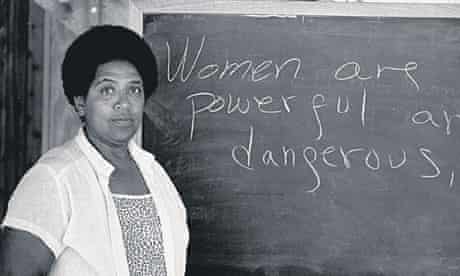Darling: New & Selected Poems
Bloodaxe Books
2007
224 pages
Paperback ISBN: 1 85224 777 0
Jackie Kay, Professor of Creative Writing
Newcastle University

Humour, gender, sexuality, sensuality, identity, racism, cultural difference: when do any of these things ever come together to equal poetry? When Jackie Kay’s part of the equation. Darling brings together into a vibrant new book many favourite poems from her four Bloodaxe collections, The Adoption Papers, Other Lovers, Off Colour and Life Mask, as well as featuring new work, some previously uncollected poems, and some lively poetry for younger readers.
Kay’s poems draw on her own life and the lives of others to make a tapestry of voice and communal understanding. The title of her acclaimed short story collection, Why Don’t You Stop Talking, could be a comment on her own poems, their urgency of voice and their recognition of the urgency in all voice, particularly the need to be heard, to have voice. And what voice – the voices of the everyday, the voices of jazz, the voices of this many-voiced United Kingdom.
Jackie Kay reads from Darling
Jackie Kay reads three poems, ‘In My Country’, ‘Somebody Else’ and ‘Darling’, from Darling: New & Selected Poems (Bloodaxe Books, 2007). This film is from the DVD-book In Person: 30 Poets filmed by Pamela Robertson-Pearce, edited by Neil Astley, which includes eight poems from Darling read by Jackie Kay. Jackie Kay was an adopted child of Scottish/Nigerian descent brought up by Scottish parents. With humour and emotional directness, her poetry explores gender, sexuality, identity, racism and cultural difference as well as love and music. Her poems draw on her own life and the lives of others to make a tapestry of voice and communal understanding. We filmed her at her home in Manchester in 2007.
A short biography of Jackie Kay written by Elizabeth Shostak can be read here. An excerpt is below.
Unconventional Upbringing
Kay’s fascination with themes of identity can be traced to an upbringing that set her apart, in many ways, from the majority culture in her native Scotland. Born in Edinburgh to a Scottish mother and a Nigerian father, she was adopted by a white family and raised in Glasgow, where she often accompanied her communist parents to antiapartheid demonstrations and peace rallies. Life wasn’t easy for a biracial child in mostly–white Glasgow. “I still have Scottish people asking me where I’m from,” she told Guardian writer Libby Brooks. “They won’t actually hear my voice, because they’re too busy seeing my face.”…
Early Works Explored Identity
When Kay was twelve, she wrote One Person, Two Names, an eighty–page story about an African–American girl who pretended to be white. The question of how we define ourselves, and why, has intrigued Kay in all her subsequent work…
1Shostak, Elizabeth. “Kay, Jackie 1961–.” Contemporary Black Biography. 2003. Encyclopedia.com. (May 2, 2010). http://www.encyclopedia.com/doc/1G2-2873900038.html



